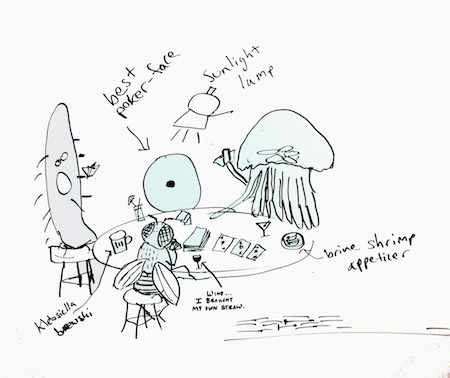Projects

Networks in the Brain and Networks of Genes
Our research focuses on genes and how they influence behavior. In the fruit fly Drosophila, these studies have included: the demonstration that the fly has a sleep-like behavior similar to that of mammals, the use of highly localized genetic alterations in the nervous system to manipulate behavior, molecular identification of genes causing naturally occurring variation in behaviors such as foraging, geotaxis, and aggression, studies of the circuitry underlying 'innate' courtship behavior; studies of the physiology and circuitry underlying attention and arousal, and studies of the structure and function of gene networks.
In addition to studying these questions in Drosophila, we are now also working with simpler organisms in an effort to be able to manipulate and monitor activities at the whole-network scale. For neuronal networks, we are using optical imaging of whole nervous systems in small jellyfish medusa, and for gene networks we are analyzing whole-genome scale expression patterns in response to manipulations in Paramecium and cyanobacteria. In all of the network studies, we use behavioral outputs (e.g., phototaxis, chemotaxis, and circadian rhythms) as the phenotype to monitor, in conjunction with analysis of network states.

Manipulating the Jellyfish: Towards a Strategy for Control of Blooms